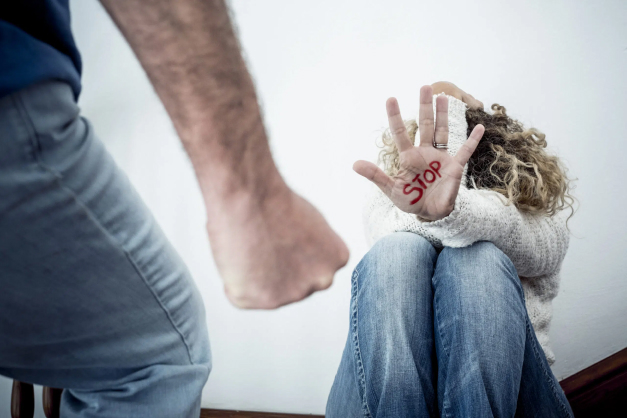Domestic violence is an issue that courts and law enforcement take very seriously. Those who commit crimes classified as domestic violence can have a very harmful impact on victims and their families. If you are a victim of domestic violence, you have the right to file a restraining order to protect yourself and your loved ones.
What is a Domestic Violence Restraining Order?
A domestic violence restraining order is a court order that prohibits the abuser from contacting you, coming near you, or harming you in any way. Restraining orders can also order the abuser to move out of the home and to pay child support and alimony.
Who Can File a Domestic Violence Restraining Order in Wisconsin?
In Wisconsin, the following people can file a domestic violence restraining order:
- Spouses or former spouses;
- Adults who live with another adult, including an adult caregiver;;
- People who have lived together in a romantic or intimate relationship;
- People who have a child together
- People who are dating or have dated in the past
What Are the Grounds for a Domestic Violence Restraining Order in Wisconsin?
To obtain a domestic violence restraining order in Wisconsin, you must show the court that the abuser has committed domestic abuse against you.
Domestic abuse includes the following types of behavior:
- Physical violence, such as hitting, kicking, punching, or choking
- Sexual assault
- Threats of violence or harm
- Emotional abuse, such as name-calling, belittling, or intimidation
- Stalking or harassment
To prove your case, you must show that there is reasonable grounds to believe, or more than 50 percent proof, that the other person has committed, or is likely to commit, an act of domestic violence against you. Evidence such as police reports, hospital records, photographs of injuries, text message records indicating abuse, and other types of proof can be vital in establishing grounds for a restraining order.
How to File a Domestic Violence Restraining Order in Wisconsin
It may be intimidating to seek legal action against your abuser. Know that many sources of support are available to victims, and people will believe the things that have happened to you. Contact your friends and family if you are feeling stuck, or call one of the hotlines at the end of this post. A support network is waiting to help you, even though you may feel alone.
Contact Local Domestic Violence Support
As a victim of domestic violence, you have the right to file a restraining order to protect yourself and your loved ones. A restraining order can help you feel safer and rebuild your life free from abuse.
Every county has a domestic violence agency that assists individuals through filing a domestic violence restraining order. These agencies have several advocates who can attend court hearings with you and help you file your petition for a restraining order if necessary.
Complete the Paperwork
To file a domestic violence restraining order in Wisconsin, you must go to the circuit court in the county where you live or where the abuse occurred. You can get the necessary forms from the court clerk’s office with instructions about entering the information needed on the forms. Once you have completed the forms, you must file them with the court clerk and pay a filing fee. The court clerk will then schedule a hearing date.
Attend the Hearing
At the hearing, you will have the opportunity to tell the judge or court commissioner about the abuse that you have suffered. The abuser will also have the opportunity to speak. After hearing both sides of the story, the judge or court commissioner will decide whether or not to grant a restraining order.
If the judge grants a restraining order, the abuser will be served with a copy of the order. The person against whom the order is filed will be notified of the terms of the order, like if they are required to give up firearms or avoid certain places, and will be advised what will happen if the order is violated.
What Happens if the Abuser Violates a Domestic Violence Restraining Order?
In Wisconsin, courts may grant a restraining order for a maximum of four years for domestic abuse, harassment, or individuals at risk unless there is a substantial risk that the other person will commit a serious offense against you such as: First Degree Intentional Homicide, Second Degree Intentional Homicide, and/or First through Third Degree Sexual Assault. Additionally, if the abuser has been convicted of First through Third Degree Sexual Assault, the judge may extend the restraining order permanently.
If the abuser violates a domestic violence restraining order, they may be arrested and charged with a crime. If the abuser is found guilty of that crime, he or she may be fined up to ten thousand dollars or jailed for up to nine months. When charging a person with violating a restraining order, the state has to provide evidence the restraining order is legal and valid, that the person knew a restraining order was in effect, and that they took actions that violated the terms of the order.
Resources for Victims of Domestic Violence in Wisconsin
If you are a victim of domestic violence in Wisconsin, there are several resources available to help you, including:
- The Wisconsin Coalition Against Domestic Violence: 1-800-799-SAFE (7233)
- The National Domestic Violence Hotline: 1-800-799-SAFE (7233)
- The Wisconsin Victim Crime Compensation Program: 1-800-333-9427
Seek Legal Representation
Talking to an attorney or a domestic violence advocate can be very helpful if you are considering filing a restraining order or pursuing criminal charges. They can ensure you understand the process and prepare for your hearing. Lawyers have helped many victims and can give you an idea of what to expect while seeking a restraining order for domestic violence. Casper Mehlos Law Group, LLC offers free consultations. Call us at (608) 820-8926 to schedule a meeting with our team.
Please remember that you are not alone. There are people who care about you and want to help. If you are in danger, please call 911 or if you are injured please go to the nearest emergency room.

 (608) 820-8926
(608) 820-8926 Call Us Now
Call Us Now Email Us Now
Email Us Now

